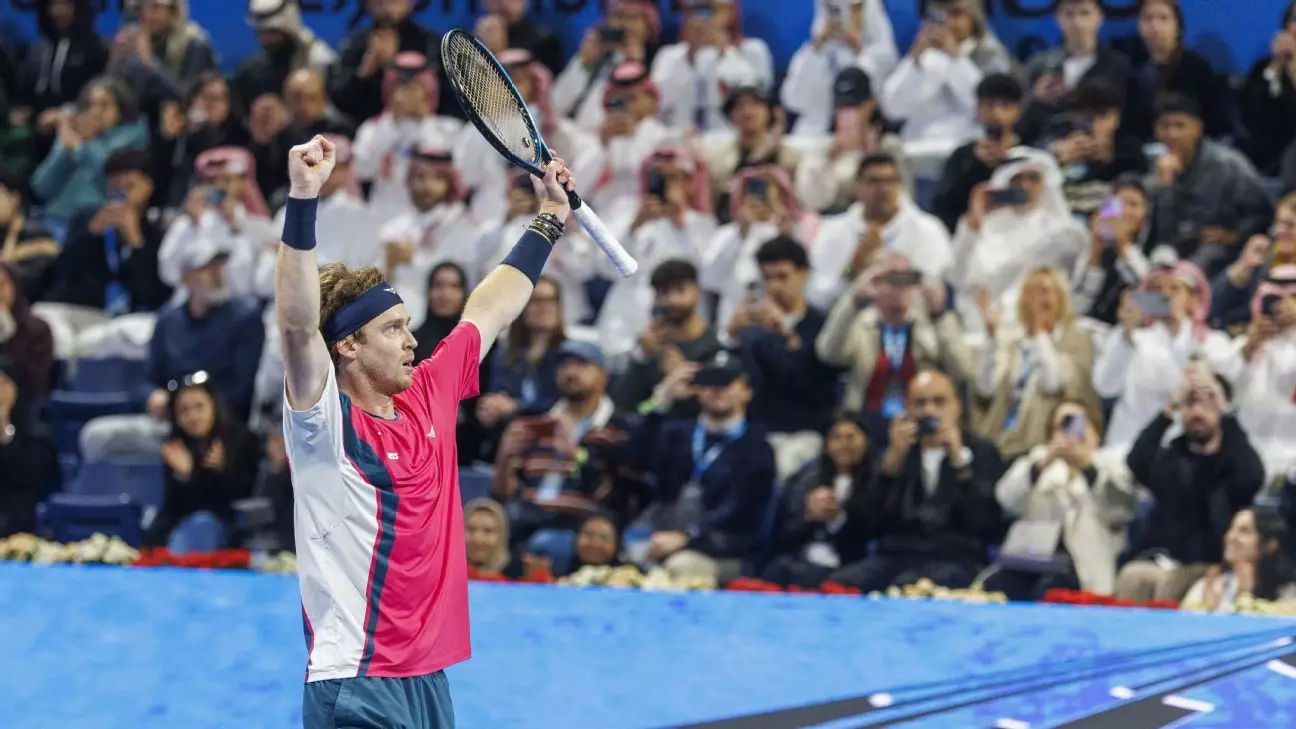In the world of professional sports, the quest for peak performance often comes at a steep emotional price. Andrey Rublev, currently ranked No. 9 in the world, is an exemplar of the mental struggles that can accompany athletic excellence. While talent and dedication are paramount in achieving success, the mental fortitude required to sustain it often complicates the journey for many athletes. Rublev’s recent reflections highlight how mental health issues can overshadow even the most promising careers, showcasing a universal struggle among sports professionals.
Rublev’s candid discussions with Marat Safin, the illustrious two-time Grand Slam champion, have proven pivotal in his mental health recovery. Safin, notorious for his emotional outbursts on the court, has seen his share of challenges and thus provided invaluable insight. Conversations with a fellow player who understands the psychological intricacies of the sport allowed Rublev to reassess his own mental state. “He made me understand myself,” Rublev noted—a revelation that emphasizes the importance of mentorship and dialogue in navigating personal struggles.
For Rublev, the past few years have been marked by a relentless cycle of anxiety and self-doubt. These sentiments resonated deeply as he recounted feeling lost and uncertain about his purpose, akin to a mind caught in a perpetual loop. It is chilling how emotional fatigue can invade an athlete’s life, overshadowing not just their competitive spirit but also their personal happiness. For Rublev, the breaking point came after years of grappling with these feelings, leading him to seek ways to create a more stable emotional foundation.
The stigma surrounding mental health in sports can hinder athletes from seeking help. Rublev’s decision to briefly use antidepressants speaks volumes about the complexities of mental health treatment. While medication can be essential for some, it is not a catch-all solution. Rublev’s experiences reflect common sentiments—what works for one individual may not work for another. His eventual realization that drug-based solutions weren’t effective for him marks a significant turn in his journey. This underscores a critical message in mental health discourse: self-discovery must accompany treatment.
After engaging in dialogue with Safin and experiencing a mental “restart,” Rublev has come to an equilibrium, stating that while he isn’t euphoric, he feels free from the clutches of stress and anxiety. Describing his emotional state as “neutral” illustrates the importance he places on maintaining balance rather than chasing fleeting happiness—a profound lesson that transcends athletic performance.
As he prepares to compete in the Dubai tournament, Rublev carries with him not just physical readiness but an enhanced mental clarity. He faces French qualifier Quentin Halys, but the real victory is his mental resilience. Moving forward, Rublev’s journey serves as an inspiration to athletes who might be facing similar emotional challenges. His willingness to confront these issues head-on promotes a growing acceptance of mental health conversations in sports.
Ultimately, Rublev’s narrative exemplifies a broader struggle faced by many in the high-stakes world of athletics. Acknowledging mental health issues, seeking guidance, and fostering self-awareness go hand in hand with the pursuit of excellence. As he steps onto the court with renewed determination, Rublev has embarked on a more profound journey—finding stability within himself, which is often the most challenging match to win.


Leave a Reply